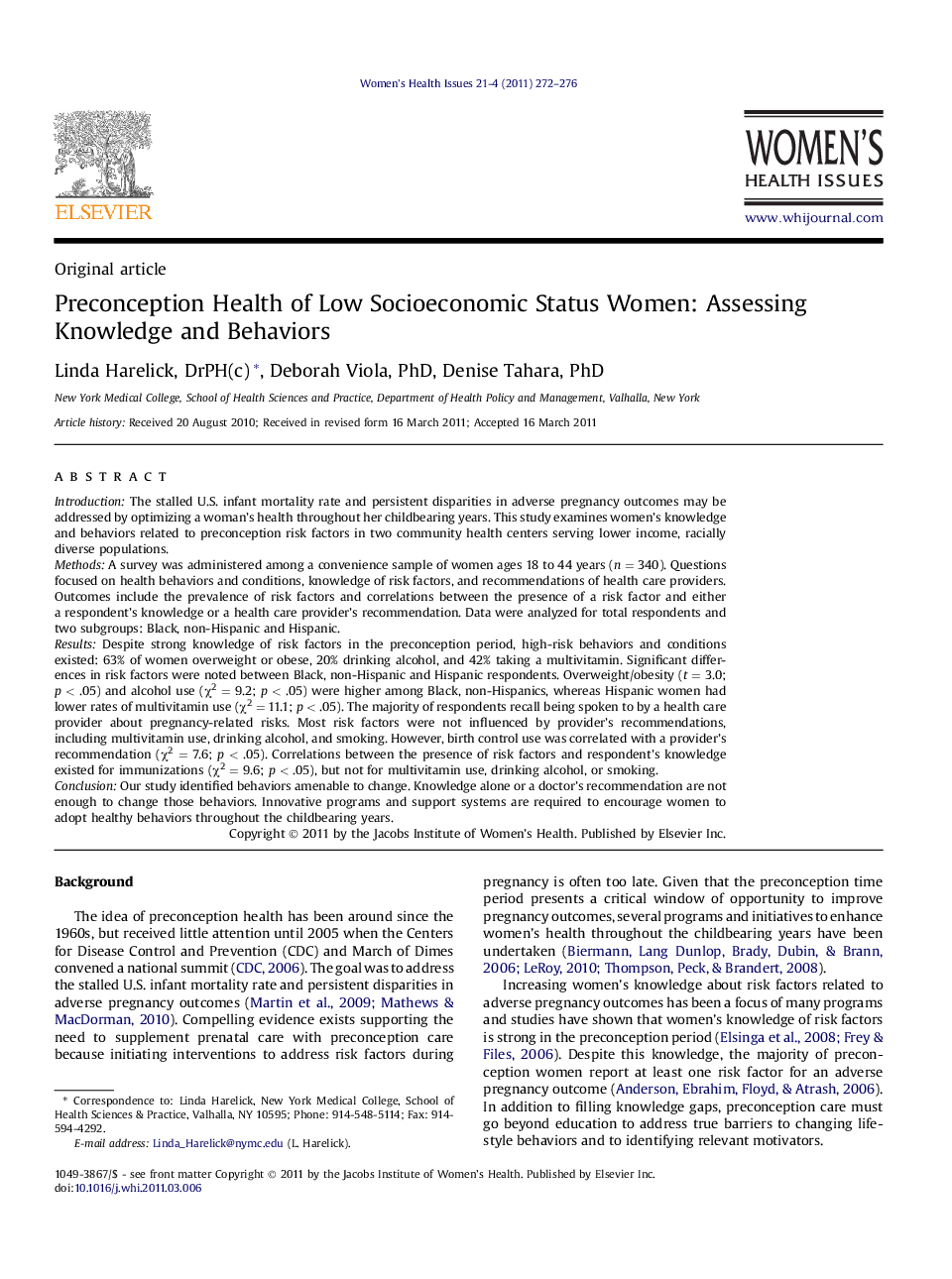| کد مقاله | کد نشریه | سال انتشار | مقاله انگلیسی | نسخه تمام متن |
|---|---|---|---|---|
| 1093196 | 952371 | 2011 | 5 صفحه PDF | دانلود رایگان |

IntroductionThe stalled U.S. infant mortality rate and persistent disparities in adverse pregnancy outcomes may be addressed by optimizing a woman’s health throughout her childbearing years. This study examines women’s knowledge and behaviors related to preconception risk factors in two community health centers serving lower income, racially diverse populations.MethodsA survey was administered among a convenience sample of women ages 18 to 44 years (n = 340). Questions focused on health behaviors and conditions, knowledge of risk factors, and recommendations of health care providers. Outcomes include the prevalence of risk factors and correlations between the presence of a risk factor and either a respondent’s knowledge or a health care provider’s recommendation. Data were analyzed for total respondents and two subgroups: Black, non-Hispanic and Hispanic.ResultsDespite strong knowledge of risk factors in the preconception period, high-risk behaviors and conditions existed: 63% of women overweight or obese, 20% drinking alcohol, and 42% taking a multivitamin. Significant differences in risk factors were noted between Black, non-Hispanic and Hispanic respondents. Overweight/obesity (t = 3.0; p < .05) and alcohol use (χ2 = 9.2; p < .05) were higher among Black, non-Hispanics, whereas Hispanic women had lower rates of multivitamin use (χ2 = 11.1; p < .05). The majority of respondents recall being spoken to by a health care provider about pregnancy-related risks. Most risk factors were not influenced by provider’s recommendations, including multivitamin use, drinking alcohol, and smoking. However, birth control use was correlated with a provider’s recommendation (χ2 = 7.6; p < .05). Correlations between the presence of risk factors and respondent’s knowledge existed for immunizations (χ2 = 9.6; p < .05), but not for multivitamin use, drinking alcohol, or smoking.ConclusionOur study identified behaviors amenable to change. Knowledge alone or a doctor’s recommendation are not enough to change those behaviors. Innovative programs and support systems are required to encourage women to adopt healthy behaviors throughout the childbearing years.
Journal: Women's Health Issues - Volume 21, Issue 4, July–August 2011, Pages 272–276